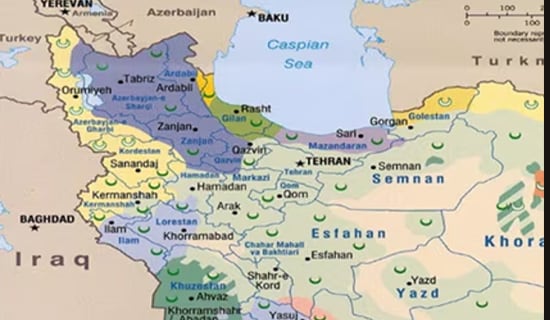The Ispah rebellion (亦思巴奚兵乱), also known as the Persian Sepoy rebellion, was a series of civil wars that broke out in China's Fujian Province, near Taiwan, in 1357 and lasted until 1366, at the end of the Yuan Dynasty. The rebellion began as a sectarian conflict between Shi'ite and Sunni Muslims for dominance in the port city of Quanzhou. Later, the rebellion developed into a conflict with the Yuan Dynasty's imperial army.
At the time, Quanzhou was the largest port city in the world, and it was the origin of the Maritime Silk Road. Its population numbered two million and consisted of a large number of foreigners, including Arabs, Persians, Europeans, Jews, and Indians. About 100 languages were spoken in the city.

Chinese Muslims praying.
During the war, Sunnis and Shi'ites clashed throughout China, and many Han Chinese were killed as well. In response to the unrest, the Yuan imperial army completely wiped out the Persian population in Quanzhou, since the conflict had been sparked by Persian Shi'ites. It also killed almost all the Semu (色目人),a term used by the Yuan Dynasty to refer to a range of people from Central Asia, West Asia and Europe) merchants from overseas.
The wars spread to parts of Quanzhou, Xinghua, and Fuzhou, causing a large number of civilian deaths. The continuous wars destroyed the stability of Quanzhou Port, leading to the exodus of a large number of Muslims who had come from overseas. This severely damaged the social order and economic trade in Quanzhou and Xinghua, and it caused a sharp decline in the flourishing overseas trade in Quanzhou. With the decline of Quanzhou, the Islamic presence almost completely disappeared, and there has been no Shiite influence in China since.
Since the end of the Yuan Dynasty, the xenophobic and conservative Chinese ruling cliques have always looked to these Muslim rebellions as examples. From the Ming and Qing Dynasties to the Republic of China and the People's Republic of China established by the CCP, Islam has basically been outwardly "respected," but in reality strictly guarded against and suppressed.
It is impossible that Chinese President Xi Jinping, who worked in Fujian for 17 years and was once governor of the province, does not know this history. I believe that Xi's understanding of Islam and Muslims is heavily influenced by the lessons learned in the Ispah rebellion, and it is not surprising that when he became the leader of the CCP, he ruthlessly suppressed the Uyghurs and other Muslim communities in the restive Xinjiang region, and suppressed Islam across the country as well.
*Chris King is Senior Research Fellow for the MEMRI Chinese Media Studies Project. King was an active participant in the student protests in China in 1989.








